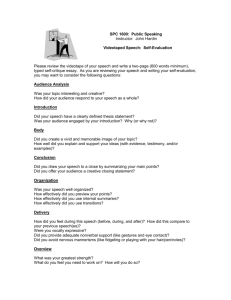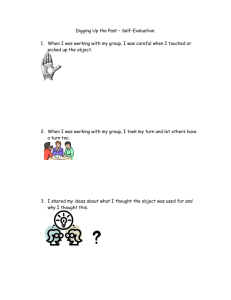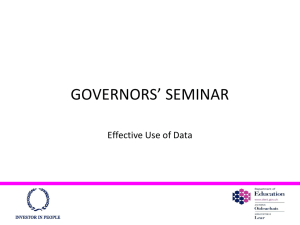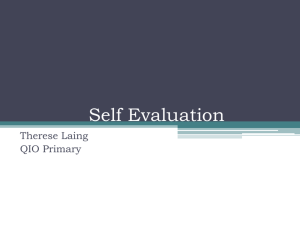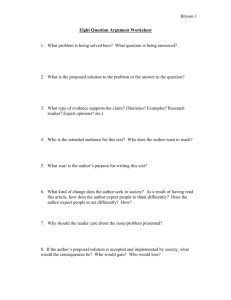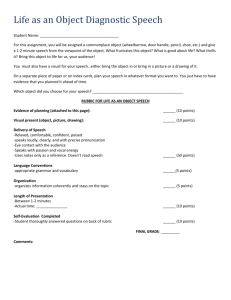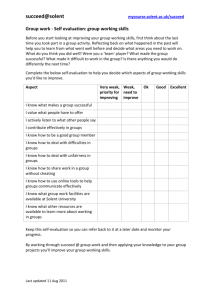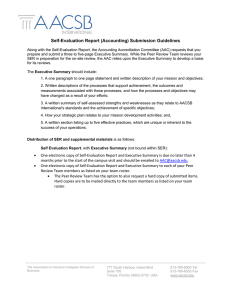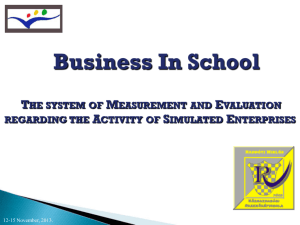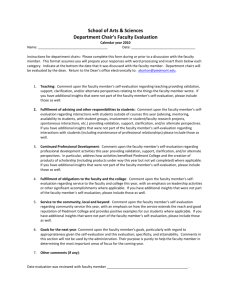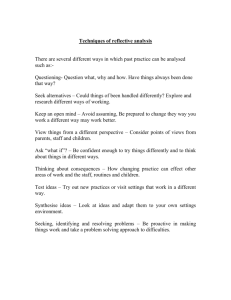Lesson Plan Self-Reflection & Evaluation Guide
advertisement
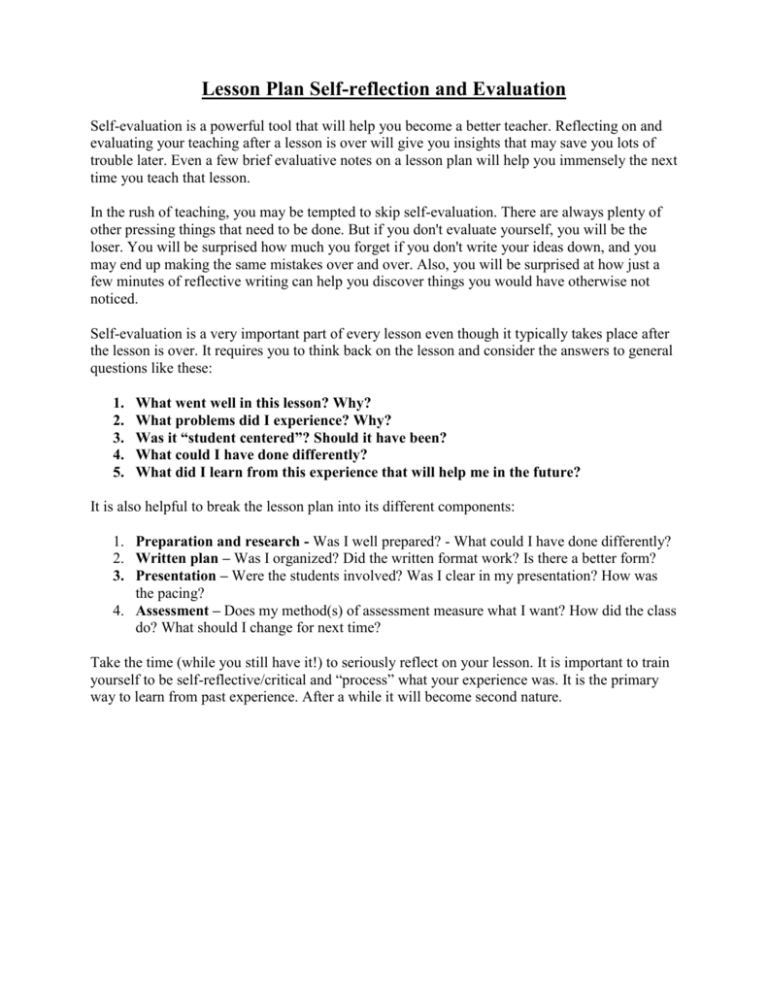
Lesson Plan Self-reflection and Evaluation Self-evaluation is a powerful tool that will help you become a better teacher. Reflecting on and evaluating your teaching after a lesson is over will give you insights that may save you lots of trouble later. Even a few brief evaluative notes on a lesson plan will help you immensely the next time you teach that lesson. In the rush of teaching, you may be tempted to skip self-evaluation. There are always plenty of other pressing things that need to be done. But if you don't evaluate yourself, you will be the loser. You will be surprised how much you forget if you don't write your ideas down, and you may end up making the same mistakes over and over. Also, you will be surprised at how just a few minutes of reflective writing can help you discover things you would have otherwise not noticed. Self-evaluation is a very important part of every lesson even though it typically takes place after the lesson is over. It requires you to think back on the lesson and consider the answers to general questions like these: 1. 2. 3. 4. 5. What went well in this lesson? Why? What problems did I experience? Why? Was it “student centered”? Should it have been? What could I have done differently? What did I learn from this experience that will help me in the future? It is also helpful to break the lesson plan into its different components: 1. Preparation and research - Was I well prepared? - What could I have done differently? 2. Written plan – Was I organized? Did the written format work? Is there a better form? 3. Presentation – Were the students involved? Was I clear in my presentation? How was the pacing? 4. Assessment – Does my method(s) of assessment measure what I want? How did the class do? What should I change for next time? Take the time (while you still have it!) to seriously reflect on your lesson. It is important to train yourself to be self-reflective/critical and “process” what your experience was. It is the primary way to learn from past experience. After a while it will become second nature. Sample Narrative reflections: Sample Self-evaluation (written in teacher's log after lesson) #1 This group of students is great! They remembered a lot from the last lesson. All of them demonstrated eagerness to learn. Overall, the lesson went really well. I called on students by name and used information about them (from the information sheets they filled out during the first class period) in the examples I gave. Unfortunately, I spent so much time on the presentation stage of the lesson that we had to rush through the other activities. I think I had too much vocabulary to cover. Next time, I will start with the specific information on the back of the application. I felt like I talked too much. The more timid students didn't get a chance to practice speaking. I wish I had included more communicative activities involving the students. That way they would get more of the practice they need. Sample Self-Evaluation #2 During the first part of the lesson I felt insecure. I temporarily lost my focus because of the new circumstances and because many of the students arrived late. As a result, the lesson did not start well. It was choppy and disjointed. Once I got into the lesson, I felt more comfortable. When we began the exercises and the students started participating, things got better. The laughter and interactions at the end humanized what had started out to be a structured, dry lesson. I could actually sense that learning was taking place and that I was directing that learning. From this experience I learned that I need to create a more open teaching style. I must also remember to spend less time on explanations and get right into the practice activities. They were more effective than reading the story and underlining the prepositions. I also realized more than ever the importance of being flexible. Changes may be necessary in the best of lesson plans. Self – assessment form (use the back if necessary) 1. What went well in this lesson? Why? 2. What problems did I experience? Why? 3. Was it “student centered”? Should it have been? 4. What could I have done differently? 5. What did I learn from this experience that will help me in the future? 6. Preparation and research - Was I well prepared? - What could I have done differently? 7. Written plan – Was I organized? Did the written format work? Is there a better form? 8. Presentation – Were the students involved? Was I clear in my presentation? How was the pacing? 9. Assessment – Does my method of assessment measure what I want? How did the class do? What should I change for next time?

